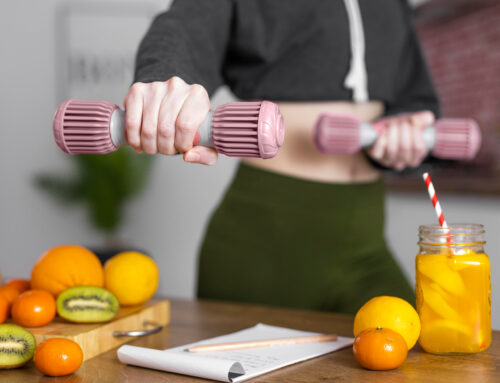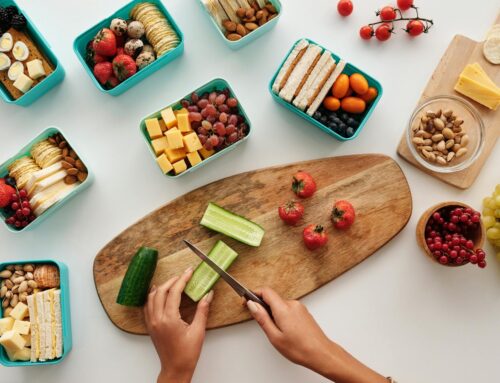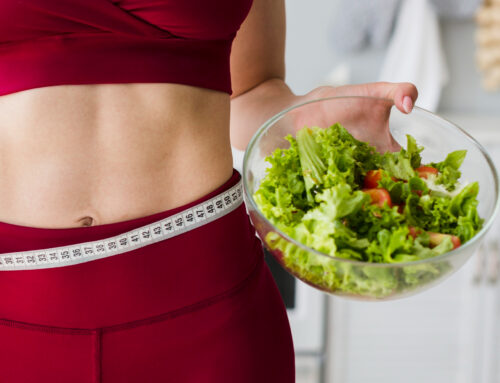To stay energetic all day, you need to do more than simply work out hard. You also need to eat the proper foods at the correct times. In the U.S., the best athletes follow regular food programs that are meant to help them perform better, recover faster, and keep their energy up throughout tough workouts. If you’ve been curious about what great athletes eat outside of the gym, this article will show you their daily meal plans and how you can use them to boost your energy.
Why Nutrition Is the Most Important Part of Peak Performance
Most individuals don’t know how important nutrition is to performance. Athletes can’t only exercise hard; what they eat has a direct effect on how well they do. A well-planned meal plan makes sure that muscles receive enough protein to regenerate, carbohydrates are balanced to keep energy levels consistent, and vitamins and minerals help the body heal quicker. For those who love working out and utilize a home gym, copying these tips may help them get results quicker, last longer, and have fewer days when they feel burned out.
The Secret to US Athletes’ Meal Plans
Athletes use a simple but effective formula: carbohydrates for energy, protein for recovery, healthy fats for endurance, and micronutrients for strength. The timing of these nutrients is just as important as their quality. For instance, carbohydrates are eaten early in the day to help with training, while proteins and healthy fats are eaten after workouts to speed up recovery.
Fuel for the Morning: Energy That Lasts All Day
A lot of American athletes start their day with a combination of fruits, lean protein, and complex carbohydrates. A frequent breakfast is oatmeal with fruit and almond butter on top.
- Eggs scrambled with spinach
- A smoothie with protein, banana, whey protein, and flaxseeds
This mix gives you a consistent stream of energy, keeps your blood sugar levels stable, and stops you from crashing in the middle of the morning.
Snacks in the middle of the morning provide you a controlled energy boost
Instead of grabbing processed snacks, athletes pick meals that are high in nutrients to keep their energy levels steady. Some examples are: Greek yogurt with honey
- A little amount of walnuts or almonds
- Apple slices with peanut butter
These little nibbles help you stay focused and save you from eating too much later in the day.

Lunch with a lot of power for recovery
Lunch is commonly following morning workout sessions and is full of protein and carbohydrates that help with recuperation. These are examples of meal plans:
- Grilled chicken breast with quinoa and veggies that have been roasted
- A dish of salmon with brown rice and avocado
- A turkey wrap with a whole-grain tortilla, leafy spinach, and hummus
These meals not only help rebuild muscle, but they also fill up glycogen stores so you’re ready for your next workout.
Nutrition in the Afternoon: How to Fight Tiredness
Instead of too much caffeine, athletes eat snacks that are high in protein and low in sugar, like:
- Protein bars
- Trail mix with dried fruit and seeds
- Pineapple with cottage cheese
These choices give you energy that lasts without the crash.
Dinner: Meals that help you recover and feel better
Dinner is all about lean proteins, omega-rich fats, and vegetables full of antioxidants. Some common meals are grilled salmon with sweet potatoes and asparagus and lean beef stir-fry with broccoli and brown rice.
Salad with lentils and quinoa and olive oil dressing
This lets muscles heal while you sleep, and healthy fats help keep hormones in balance and joints healthy.
The Overlooked Hydration Key
You need to drink water with your meal plans. To stay hydrated, many American athletes drink water, electrolyte drinks, and green teas. Dehydration can lower performance by as much as 20%, so drinking water is just as important as eating.
Supplements That Complement Nutrition
Many athletes boost their diet with supplements like whey protein, BCAAs, multivitamins, and omega-3 capsules. While whole meals remain the basis, supplements fill in the gaps and guarantee the body remains in optimum shape.
How You Can Use These Meal Plan Secrets
The beauty of these athlete-approved meal plans is that you don’t need to be a professional athlete to benefit from them. By adopting the same eating practices, you can:
- Increase everyday energy without depending on stimulants
- Improve exercise recovery and performance
- Maintain a healthy weight effortlessly
- Boost attention and productivity at work
Recommended Products for Home Athletes
If you’re training at home and want to try athlete-inspired nutrition, here are some things to consider:
- Protein Powders: Convenient for fast shakes and recovery meals
- Meal Prep Containers: Essential for planning and keeping to dietary goals
- Healthy Snack Packs: Pre-portioned nuts, seeds, and dried fruits for energy boosts
- Hydration Bottles with Infusers: Keeps you hydrated and promotes natural flavoring with fruits
Final Thoughts
The key of U.S. athletes’ ability to remain motivated all day lies in their rigorous eating. By eating balanced meals that concentrate on proteins, complex carbohydrates, healthy fats, and water, they maintain top performance both on and off the field. For fitness fans and home gym users, following these meal plan ideas is a game-changer—it’s the closest thing to accessing athletic energy without being a pro.






Leave A Comment